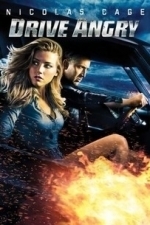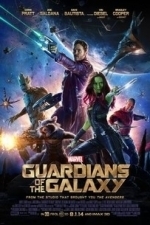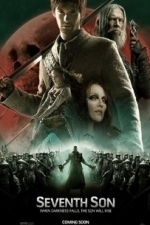Lee (2222 KP) rated Stan & Ollie (2018) in Movies
Dec 19, 2018 (Updated Dec 19, 2018)
The movie begins in 1937, where Stan and Ollie are currently riding high as the most successful comedy performers in Hollywood. They're at Hal Roach studios, making their way to the set of Way Out West in order to shoot another scene. They're just chatting away together as we follow them - about their wives, about money. Stan's contract with Hal Roach is due to end shortly, while Ollie's isn't, and Stan is conscious of the fact that they don't actually own the rights to their own movies, so don't make as much money as performers such as Charlie Chaplin. He argues a bit with Hal Roach about it, before he and Ollie perform a song and dance number for the movie (the original clip of this scene is shown at the end of this movie, highlighting just how perfectly they nailed the recreation of it here). That short conversation, and the differing viewpoints regarding money and their film rights, lays the foundations for the rest of the movie, and we then jump forward 16 years.
The boys arrive in Newcastle, England in 1953. They're here to perform a tour of the UK, recreating classic scenes from their movies in an attempt to generate enough interest in them to get a movie made. A retelling of Robin Hood, which is being written by Stan. Age is clearly catching up with them though, particularly with Ollie, while Stan remains the driving force of the pair, constantly performing classic gags and coming up with new ideas. Unfortunately for them, they barely manage to fill half the seats of the theatres they perform in, with concern growing as to whether or not their eventual London dates will even go ahead. Their wives are due to join them on tour in a couple of weeks time, and they're also concerned as to what they'll make of it all when they arrive, especially as the boys are currently only staying in small, simple guest houses. Promoter Bernard Delfont (one of the movies funniest supporting roles) is keen to get them out and about promoting themselves, attending events and meeting dignitaries. His interests initially seem focused elsewhere in the theatre business, particularly with upcoming British comedy performer Norman Wisdom, so it's hard work generating interest in Laurel & Hardy once more. Luckily though, the effort pays off, and they eventually upgrade their London show to a bigger theatre, selling it out.
John C Reilly and Steve Coogan are just perfect as Stan and Ollie. I struggled a little at times with Steve Coogan, as I've been a big fan of his varied comedy work for nearly 30 years now, so found it a bit distracting. But he definitely pulls this off, and it's incredible to see so many mannerisms and iconic scenes from their movies so perfectly reproduced by both leads. The other outstanding and hilarious double act in this movie are the wives, who arrive in London to support their husbands and mix things up a little. They are clearly very caring and protective of their husbands though, supporting them through ill health, and an unfortunate falling out between Stan and Ollie related to events that occurred 16 years ago. A pivotal moment in their careers which was alluded to in the opening scenes of the movie, and further elaborated on in a number of flashbacks later on. It's a bit of an emotional roller-coaster, but overall this is a wonderfully heartwarming and moving love story about two of Hollywoods greatest. And it succeeded in making me want to watch every single one of their movies again.
Phillip McSween (751 KP) rated Drive Angry (2011) in Movies
Mar 13, 2020
Acting: 5
I feel like these actors knew after the first week of filming that this was going to be a shit-show so they all mailed it in. Nicholas Cage, star of said shit-show, delivers his lines with the excitement of someone getting a flu shot. I won’t linger on this point, but let’s just say I’ve seen the cast of a Hallmark movie do better than these lame-duck performances.
Beginning: 1
Much like the middle and the end, the beginning is an awful disaster. It sports one of the worst setups I think I have ever seen for a movie. After ten minutes, I knew I was in for a world of pain.
Characters: 2
Cinematography/Visuals: 8
Honestly, the visuals could be a lot worse. There were some decent moments particularly when things slowed down that were bordering on looking pretty cool. While a lot of action sequences were pretty cheesy it was nice to see they at least put in a smidgeon of effort with the special effects.
Conflict: 5
Entertainment Value: 2
Memorability: 0
After the movie was over, I instantly started thinking, “Is there a time machine that I can use to get part of my life back?” There is absolutely no value in this movie, nothing to remember with the exception of the absolutely horrid filmmaking. I am still appalled this project made it through completion.
Pace: 0
Plot: 0
Story? We don’t need no stinking story! Oh, how I would have loved to be a fly on the wall during this pitch meeting. It seriously made my head hurt. They try and give you a story then throw it all out the window with repeated implausible occurrences that beat you into submission.
Resolution: 1
Overall: 24
In light of the Black Mamba Kobe Bryant’s passing, the number 24 should represent greatness. Not with my scoring of Drive Angry. Unless, of course, I’m referring to the greatness of sucking. If that’s the case, then yes, this movie is indeed great. Great and terrible.

Christian Dating - CDFF
Dating and Social Networking
App
Christian Dating For Free (CDFF) is the worlds largest Christian dating service for Christian...
Amanda (96 KP) rated Ready Player One in Books
Mar 18, 2019
Imagine a world where the world has kind of gone to pieces and most of the time you want to escape the harsh reality. A man invented a virtual reality called OASIS and before his passing, he stated that there is a hidden Easter egg in the OASIS and whomever finds it, has COMPLETE control of the OASIS and his fortune. It's been several years and NOBODY has been able to find the egg, or even come close to it.
The entire story is told from Wade's point of view. In reality, he's known as Wade, in OASIS he is Parzivel. The creator of OASIS is known to be a huge fan of 80's style; music, movies, tv shows, you name it, he was a fan. Wade goes through all of these shows and movies to get some sort of clue to find out what and where the egg is located. One day, he figures out the first clue and winds up being the first name on the score board.
The idea of going to a virtual school sounded like a really cool idea. From the way it's described in the book, it sounds like a much more effective way to actually learn in a classroom. I think with the way technology keeps advancing, we may very well be on our way to going that route.
I loved all of the 80's references throughout the book. I'm not an 80's child, but I've been told I'm old soul. Like, I'm a reincarnated person who was born in the 30's because I'm not really into the new shows or the new music. Mentions of Monty Python and the other TV shows that I've actually binge watched myself really brought out my inner nerd and it was enjoyable.
The only thing that made me lose a little respect for Wade is when he starts falling for another user named Art3mis. He has NO CLUE who this person is in real life, just her avatar. And in OASIS, the avatar is a blonde woman and Wade falls for her and spends as much time with her as possible. When Art3miss decides to cool it down with him, he kind of acts like a puppy who had its treat taken away. I know he's a kid who just graduated high school so having your first crush on someone really clouds your best judgment, but I found his infatuation with Art3mis rather annoying and I almost wanted to yell at my book and hope he hears me.
Am I the only one who's felt that way?
In the end, I'm rooting for Wade to find all these keys and reach the gates before someone else does. There's another company who actually specifically hires people to find this egg. This company will start charging people to use OASIS and actually give people limited access, no, we don't want that.
The book as a whole was excellent. It caught my attention in the beginning, and even though I was a bit annoyed with Wade, I still WANTED to finish this story. I WANTED to go through the OASIS journey with him and help him, encourage him, to continue and find that egg and help everybody cope with reality, with or without OASIS. If you've seen the movie, read the book. I guarantee that the movie was not able to capture EVERYTHING with this story and you deserve to know EVERYTHING about WADE and his new friends in finding that egg.
Hazel (1853 KP) rated A List of Cages in Books
Dec 17, 2018
Debut novelist Robin Roe is emerging with a bang with soon-to-be-published young adult novel, <i>A List of Cages</i>. Dealing with relatable school experience as well as devastating, painful realities, Roe engages the reader in a gripping, heartbreaking narrative.
Told through the words of two characters, <i>A List of Cages</i> explores contrasting personalities of high school students. On the one hand there is Julian, a quiet, anxious 14-year-old who is often ostracized and ridiculed by the members of his classes. Suffering from dyslexia, Julian does not enjoy school or have any friends to talk to. To make things worse, his parents have died, leaving Julian in the care of irascible Uncle Russell. In contrast, Adam, a senior, is a popular, well-loved student, whose diagnosis of ADHD causes him to be loud and energetic – the opposite of fearful Julian.
Having known Julian before the death of his parents, Adam is quick to notice the change in Julian’s personality and uses his role as aide to the school psychologist to get to know him better. Much to his friends’ unease, Adam begins bringing Julian along to parties, concerts and days out where, despite initially sticking out like a sore thumb, Julian begins to relax and realize that people enjoy having him around. Yet, Adam is still acutely aware that something is not right, and although suspicious of Julian’s uncle, does not do anything until it is almost too late…
For a fairly short story, <i>A List of Cages</i> covers a broad range of themes. Many of these are comparisons that reveal the potential problems students may face during high school. The obvious issue of learning difficulties are highlighted by Adam’s ADHD and Julian’s Dyslexia, as well as the contrasting ways teachers deal with them. There is also the difference in personality that alters the way the characters are received by their peers.
A prominent theme is grief – coming to terms with the sudden deaths of parents; but the most important subject raised is the advantage an ignoble adult may take on a vulnerable child. The abuse inflicted on Julian is demoralizing and painful to read - the understanding that this is a real issue in today’s world, shatteringly upsetting. The ease with which an abuser controls their victim is extremely scary, however the knowledge that there are people around to help and/or rescue the child is uplifting.
<i>A List of Cages</i> has been listed as suitable for readers between the ages of 12 and 18, however I disagree. The distressing storyline will most likely upset the lower end of this scale, especially as at that age they may not be able to fully understand the circumstances described. The occasional use of expletives support my opinion that older readers are the more appropriate audience.
It may take a few chapters to get a feel for the book, however <i>A List of Cages</i> is a highly recommended novel. Many writers over the past decade have brought topics previously taboo to readers’ attentions. Robin Roe continues to create an awareness of such matters through her incisive story. Her writing style will appeal to many well-read teenagers, and it is hoped that she will continue publishing works in this vein.
Ryan Hill (152 KP) rated Guardians of the Galaxy (2014) in Movies
May 10, 2019
Guardians of the Galaxy almost off the bat confronts two major complaints I hear about Marvel flicks. First, that they don't look cinematic. Call it the "TV show aesthetic." Moderately flat shots, muted colors, forgettable music, etc. Second, that they're too heavy on witty banter and don't leave enough room for genuinely meaty substance. In regards to the first point, this film looks gorgeous. The color palette and cinematography are both creative and have an absolute blast with the concept of creating a grandiose space opera with equal parts charm and toilet humor. Each planet has its own distinct decor and aliens. Gunn managed to create a fleshed-out, lively, and unique galaxy. In regards to the second point, while there is all sorts of banter to be found throughout, including a Jackson Pollock cum joke, Guardians of the Galaxy has to have the biggest heart out of any film in the MCU. The movie is a full measured ton of fun, but it tugs at the heartstrings in a way few modern blockbusters have been able to achieve.
Four of the five Guardians have something in their life that lead to great tragedy. Peter and Drax lost family very close to them. Gamora and Rocket were tortured and bred to be bloodthirsty warriors. But then, there's Groot. Sweet, unassuming Groot. A beast in battle, but a gentle giant otherwise. His existence seems simple. He eats a leaf off of his shoulder, he drinks water straight from a fountain, and he's more than willing to grow and give a flower to a small girl. He's perhaps the closest we have to a lead character who is wholly happy. The Guardians all start off as renegades, loners, folks reasonably hardened by lives that have enjoyed fucking them over. We get to see them by the end of the film not just grow into heroes, but friends and good people. I am Groot. You are Groot. We are Groot.
Marvel took a big gamble with this movie, but it payed off so absurdly well. The humor is great, the characters even better, and the atmosphere equal parts fun and emotional. Guardians of the Galaxy stands out in the sea of superhero films as a movie that wears its heart on its sleeve. It's weird, but it's damn proud of the fact that it is. Maybe it's alright to be a loser. The world could use a few more losers to help us along the way of life. I think what I'm trying to get down to is this: It was polite of James Gunn to make a movie to go along with his sick mixtape.

Playkids Party - Fun Games for Children
Games and Education
App
Let's get this party started! Join Junior and friends on this amazing collection of fun and...
Gareth von Kallenbach (980 KP) rated Seventh Son (2015) in Movies
Aug 6, 2019
Seventh Son is brought to us by director Sergey Bodrov. Originally set for a February 2013 release, the film had complicated distribution arrangements between Legendary and Warner Brothers, which kept causing delays.
Jeff Bridges plays one of the title characters: Master John Gregory. He is the last of an order of peacekeeper knights, which once used to be a thousand strong. All of these knights are seventh sons of seventh sons, and are self-tasked with keeping the evil creatures of the world at bay.
The movie starts off with a young Gregory completing a prison cell for an unknown woman. Years later, the prisoner, a draconic beast, breaks out and attacks a nearby town, specifically targeting the aged Knight and his apprentice (Kit Harington — Jon Snow from Game of Thrones). This recently released evil is Mother Malkin (Julianne Moore), the queen of witches.
During the battle, Harington’s brief existence in this film is brought to an end, causing Gregory to seek out another apprentice. This search leads him to young Thomas Ward (Ben Barnes). After Ward goes through some sad goodbyes with his family, he and Gregory set out to take down the Witch Queen before the blood moon sets.
His training would normally take 10 years, but they only have a week.
Put simply, this movie was very fragmented. It isn’t a good movie, but it isn’t a bad one either. It has reasonable special effects and decent fight scenes.
There is plenty of star power: Jeff Bridges, Julianne Moore, Kit Harington, Djimon Hounsou (one of my favorites), and Jason Scott Lee.
Jeff Bridges missed the mark on his character. It’s one thing to be disgruntled and war-torn with a curious sense of humor, but it’s something quite different to be outright silly.
There were no explanations. How did the order come about? Why seventh sons of seventh sons? How did Gregory KNOW there was a seventh son at that house? How did the war start? Why is Gregory the last? Why wasn’t there more about Gregory’s relationship with Malkin? Why did the skeleton in the armor attack Tom? Why do the swords hum? Where did the stone come from? Why was it powerful? Why anything, really? The story has no depth, failing to explain the “why” of any of its lore. There were only statements of fact, which confuses viewers and prevents them from becoming emotionally anchored to the story.
I simply didn’t care about the characters. The film was disorganized and rushed. Perhaps it would have been better served as two films, or a longer film, or even a mini series.
Seventh Son had the potential to be so much more. A combination of poor writing and bad direction made the movie lackluster to me and all three of my companions.
The actors delivered many campy one-liners, and the chuckles they drew from the crowd were quite unintentional.
If you are a fan of high fantasy, it’s probably worth seeing, but wait for it to arrive on Netflix and use it as background entertainment

Gynecologic Oncology
Medical and Magazines & Newspapers
App
Gynecologic Oncology It just got a whole lot easier to keep up to date with the latest research and...

Meet by Moonit - Chat & Share Photos
Social Networking and Lifestyle
App
Meet new people all over the world…chat and send photos! **As seen on ABCNews, BusinessInsider,...





